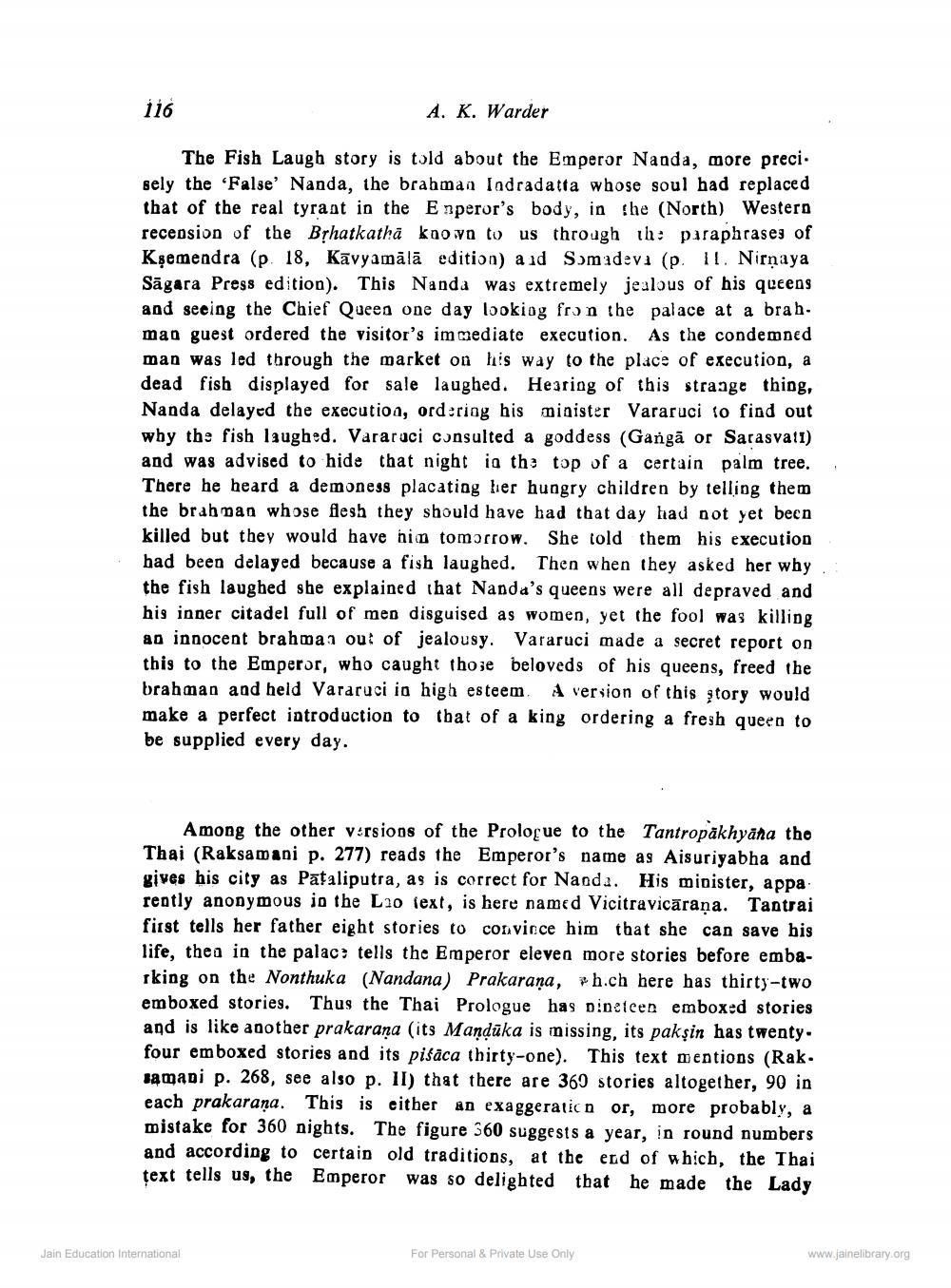________________
116
A. K. Warder
The Fish Laugh story is told about the Emperor Nanda, more preci. sely the 'False' Nanda, the brahman Indradatta whose soul had replaced that of the real tyrant in the Eaperor's body, in the (North) Western recension of the BỊhatkatha koovo to us through th: paraphrases of Kşemendra (p. 18, Kavyamālā edition) and Səmadeva (p. 11. Nirnaya Sāgara Press edition). This Nanda was extremely jealous of his queens and seeing the Chief Queen one day looking fron the palace at a brah. man guest ordered the visitor's immediate execution. As the condemned man was led through the market on his way to the place of execution, a dead fish displayed for sale laughed. Hearing of this strange thing, Nanda delayed the execution, ordering his minister Vararuci to find out why the fish laughed. Vararuci consulted a goddess (Gangā or Sarasvali) and was advised to hide that night in the top of a certain palm tree. There he heard a demoness placatiаg her hungry children by telling them the brahman whose flesh they should have had that day had not yet been killed but they would have him tomorrow. She told them his execution had been delayed because a fish laughed. Then when they asked her why the fish laughed she explained that Nanda's queens were all depraved and his inner citadel full of men disguised as women, yet the fool was killing an innocent brahman out of jealousy. Vararuci made a secret report on this to the Emperor, who caught those beloveds of his queens, freed the brahman and held Vararuci in high esteem. A version of this story would make a perfect introduction to that of a king ordering a fresh queen to be supplied every day.
Among the other versions of the Prologue to the Tantropākhyāna the Thai (Raksamani p. 277) reads the Emperor's name as Aisuriyabha and gives his city as Pataliputra, as is correct for Naoda. His minister, appa rently anonymous in the Lao fext, is here named Vicitravicārana. Tantrai first tells her father eight stories to convince him that she can save bis life, then in the palac: tells the Emperor eleven more stories before embarking on the Nonthuka (Nandana) Prakarana, Ph.ch here has thirty-two emboxed stories. Thus the Thai Prologue has pineteen emboxed stories and is like another prakaraṇa (its Mandūka is missing, its pakşin has twenty. four emboxed stories and its pisaca thirty-one). This text mentions (Rak. samapi p. 268, see also p. II) that there are 369 stories altogether, 90 in each prakarana. This is either in exaggeratic or, more probably, a mistake for 360 nights. The figure 360 suggests a year, in round numbers and according to certain old traditions, at the end of which, the Thai text tells us, the Emperor was so delighted that he made the Lady
Jain Education International
For Personal & Private Use Only
www.jainelibrary.org




